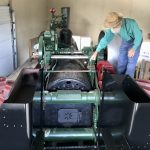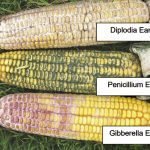
Lactanet to publish sexed semen fertility ratings
Farmers will now have access to information previously only sent to bull line-up owners

Steam power enthusiast won’t leave project unfinished
1910 Case engine will soon cross border to Michigan

Amish community relocates after nearly 65 years
Skyrocketing land prices spur communal decision

Taking the human out of dairy cow classification
Canadian start-up eyes artificial intelligence-based dairy cow evaluation

Lactanet embarks on LPI modernization process
Predictive production index has become cumbersome, complicated

Expanding knowledge about cover cropping effects
Tour hosted by Soils@Guelph puts current research efforts on display

Mycotoxin risk elevated due to wet growing season
Livestock producers need to be vigilant, says ministry, nutritionist

Methane breeding tool’s developers look to long-term adoption
Uptake has been slow among producers, but the discussion on methane efficiency has begun

A Canadian option for managing dairy data
A new herd health record-keeping app will join CATTLEytics ‘Moo To Do’

Monitoring enteric methane emissions on pasture
University of Guelph investigating link between feed efficiency and enteric methane


